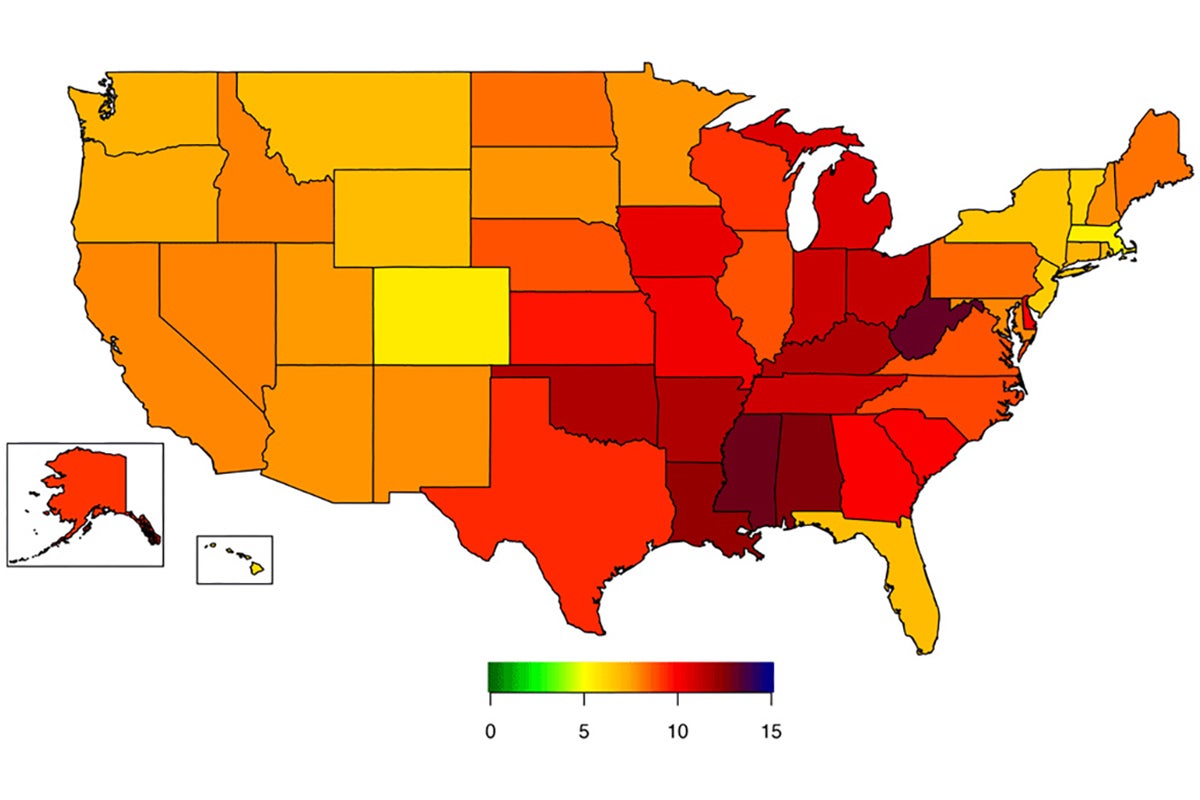Related Topics
Op-ed: Improving long COVID treatment by learning from the past
Long COVID is not a new phenomenon, but rather another form of a previously known syndrome—and applying lessons learned from that syndrome could help with treatment, according to an op-ed in STAT co-authored by Harvard Chan School's Michelle…

Improving accuracy of state-level obesity estimates to better inform prevention, treatment
A novel statistical method developed by Zachary Ward, assistant professor of health decision science at Harvard T.H. Chan School of Public Health, and colleagues gets around biases in self-reporting.

Helping ‘shift the narrative’ around health and well-being in Mississippi
The School’s community partners are shifting Mississippi’s "narrative of deficit to one of strength, hope, creativity, and opportunity."
Latino children’s health in the U.S. worsened by anti-immigrant discrimination
Latino children who live in states with more anti-immigrant prejudice and tougher policies aimed at immigrants are more likely to experience health issues, according to a study co-authored by researchers at Harvard Chan School.

Is social media use bad for young people’s mental health? It’s complicated.
Postdoctoral research fellow Laura Marciano says that social media use might be detrimental for young people’s well-being but can also have positive effects.

Keeping people safe from extreme heat
With millions of Americans facing day after day of temperatures well above 100 degrees, experts from Harvard Chan C-CHANGE are speaking out about ways to mitigate the dangerous health effects of extreme heat.

Social support may help young adults living with HIV maintain viral suppression
Katherine Tassiopoulos, senior research scientist in the Department of Epidemiology, explains the findings of a recent study on social support and viral suppression among young adults living with HIV.

Omega-3 fatty acids linked with slower progression of ALS
Consuming omega-3 fatty acids—particularly alpha-linolenic acid, a nutrient found in foods including flaxseeds, walnuts, and chia, canola, and soybean oils—may help slow the progression of disease in patients with amyotrophic lateral sclerosis (ALS), according to a new study…

Decade-long research project that explores aging in South Africa receives NIH/NIA funding for additional waves and national expansion, with a special emphasis on cognitive health
Researchers from the Harvard Center for Population and Development Studies, Harvard Chan School, the University of the Witwatersrand, and the University of Cape Town have been awarded $27 million from the National Institute on Aging to further their…

Exposure to PFAS associated with increased blood lipids, possible CVD risk
Increased exposure to certain types of PFAS is associated with increased blood lipid levels in adults, according to a new study led by Harvard Chan School.